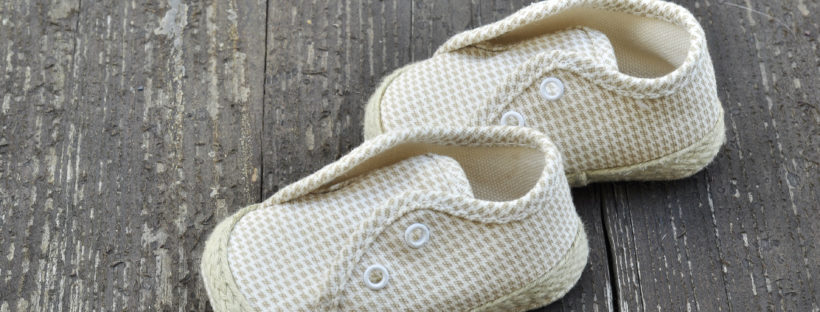Updates for Monday, May 7, 2018
Tobacco
According to a story run by BuzzFeed News, the Food and Drug Administration is cracking down on the sale of JUUL brand e-cigarettes, which are very popular among teens and young adults. The FDA has sent warning letters to 40 retailers after federal inspectors found that they sold JUUL e-cigarettes to minors, and asked JUUL for data on its marketing of the product and any potential side effects. AWHONN supports comprehensive tobacco control initiatives. In addition, nurses should screen women for tobacco use (including e-cigarettes), counsel them about the effects of tobacco use and tobacco exposure, and have access to referral information that supports cessation efforts. In case you missed it, in September 2017 AWHONN published an updated position statement on Tobacco Use and Women’s Health which can be accessed here.
Maternal Mortality
Senate Health, Education, Labor and Pensions Committee ranking member Sen. Patty Murray (D-WA) said in a Committee hearing on April 24 that the Committee will consider S 1112, the Maternal Health Accountability Act during a hearing in May. The Committee has not yet announced a date for the hearing. AWHONN advocates for expanding research funding and opportunities to investigate and alleviate the causes of maternal morbidity and mortality and will attend the hearing if it’s scheduled.
Teen Pregnancy Prevention Program
According to a story in The Hill, the Department of Health and Human Services has announced an abstinence-focused overhaul of the Teen Pregnancy Prevention Program. The funding announcement reads that “projects will clearly communicate that teen sex is a risk behavior for both the physical consequences of pregnancy and sexual transmitted infections; as well as sociological, economic and other related risks…Both risk avoidance and risk reduction approaches can and should include skills associated with helping youth delay sex as well as skills to help those youth already engaged in sexual risk to return toward risk-free choices in the future.”
In total, tier one will award up to $61 million in funds, ranging from $200,000 to $500,000 per year. The second tier solicits applications to develop and test “new and innovative strategies” to prevent teen pregnancy while improving adolescent health and addressing “youth sexual risk holistically by focusing on protective factors.”
Health Insurance
A new Kaiser Family Foundation analysis of short-term, limited duration health plans for sale through two major national online brokers finds big gaps in the benefits they offer. Through an executive order and proposed new regulations, the Trump Administration is seeking to encourage broader use of short-term, limited duration health plans as a cheaper alternative to individual market plans that comply with the Patient Protection and Affordable Care Act’s requirements. Repeal of the individual mandate penalty – which currently applies to people buying short-term plans – is also expected to boost enrollment starting next year.
Religious Refusal
According to a story in The New York Times, the Trump administration plans to implement the proposed rule, Protecting Statutory Conscience Rights in Health Care; Delegations of Authority, which seeks to permit discrimination by providers in all aspects of health care without adequately protecting patients from discrimination in accessing health care services. This new rule would roll back an Obama Administration rule that protects transgender people from discrimination by doctors, hospitals and health insurance companies. AWHONN submitted comments opposing the rule.
This proposed rule is not necessary to protect the rights of providers. It is the position of AWHONN that the existing rule issued in 2011 adequately protects the conscience of providers and patients. AWHONN asserts that nurses have the professional responsibility to provide nonjudgmental nursing care to all patients, either directly or through appropriate and timely referrals. AWHONN recognizes that some nurses may have religious or moral objections to participating in certain reproductive health care services, research, or associated activities. Therefore, AWHONN supports the existing protections afforded under federal law for a nurse who refuses to assist in performing any health care procedure to which the nurse has a moral or religious objection so long as the nurse has given appropriate notice to his or her employer. Additional information can be found in our position statement Rights and Responsibilities of Nurses Related to Reproductive Care.
Opioids Crisis
- The Senate Health, Education, Labor and Pensions Committee marked up S. 2680, the Opioid Crisis Response Act on April 16. The bill included measures to make it easier for opioids to be prescribed in smaller amounts, develop nonaddictive alternatives to opioids and strengthen border security to stop drug trafficking. It was passed by the subcommittee unanimously and will proceed to the full committee for a vote to go to the Senate floor. The bill also includes provisions to address treatment for pregnant and postpartum women in an effort to reduce instances of neonatal abstinence syndrome.
- On April 25, the House Energy & Commerce Health Subcommittee approved a package of 57 bills addressing the opioids epidemic, sending it to the full committee for their consideration.
- On April 24, the Trump administration renewed its 90-day emergency declaration regarding the ongoing opioid crisis. This is the second renewal since President Trump first declared the opioids epidemic a public health emergency in October 2017. The declaration extends the authority of federal health agencies to quickly hire more treatment specialists and reallocate resources to respond to the drug abuse epidemic.
National Guideline Clearinghouse Going Offline
The Agency for Healthcare Research and Quality National Guideline Clearinghouse web site will not be available after July 16 because federal funding through AHRQ will no longer be available to support it. The NGC is a repository of clinical practice guidelines.
Breastfeeding
On Friday, April 27, the House of Representatives voted to pass HR 4, the FAA Reauthorization Act. No, AWHONN hasn’t expanded the legislative and policy agenda to include regulating civil aviation. Rather, the FAA bill included provisions from HR 2375, the Friendly Airports for Mothers Act. This bill would direct large and medium hub airports to maintain a lactation area in each passenger terminal to provide a private and hygienic location for mothers to breastfeed their children.
AWHONN supports, protects, and promotes breastfeeding as the ideal and normative method for feeding infants, including the provision of human milk for preterm and other vulnerable newborns. Women should be encouraged and supported to exclusively breastfeed for the first six months of an infant’s life and continue to breastfeed for the first year and beyond. AWHONN partners with other maternal‐child health organization to improve cultural, institutional, and socioeconomic systems so that more women and newborns can experience the numerous physiologic and psychosocial benefits of breastfeeding. Our breastfeeding position statement can be reviewed here.
Abortion Care
According to a story in The Hill, Iowa lawmakers passed a bill on May 2 that would ban abortions once a heartbeat is detected in the fetus, effectively prohibiting the procedure by the sixth week of pregnancy. Gov. Kim Reynolds (R) has signed the bill. AWHONN’s position is that any woman’s reproductive health care decisions are best made by the informed woman in consultation with her health care provider. AWHONN believes these personal and private decisions are best made within a health care system whose providers respect the woman’s right to make her own decisions according to her personal values and preferences and to do so confidentially.
Therefore, AWHONN supports and promotes a woman’s right to evidence-based, accurate, and complete information and access to the full range of reproductive health care services. AWHONN opposes legislation and policies that limit a health care provider’s ability to counsel women as to the full range of options and to provide treatment and/or referrals, if necessary.
Title X Family Planning Programs
According to a story from Reuters, Planned Parenthood and the National Family Planning and Reproductive Health Association have filed lawsuits against the Trump administration to prevent the Title X Family Planning grant program from favoring groups that are faith-based and that promote abstinence. The lawsuits, which were filed in federal court in Washington, take aim at the guidelines the Department of Health and Human Services issued in February, which provided new criteria in evaluating applications for grants under the Title X family planning program.
 Seth A. Chase is the director of government affairs at the Association of Women’s Health, Obstetric and Neonatal Nurses.
Seth A. Chase is the director of government affairs at the Association of Women’s Health, Obstetric and Neonatal Nurses.
Sign up to get AWHONN Legislative Update delivered directly to your inbox every Monday when Congress is in session by sending an email to advocacy@awhonn.org.


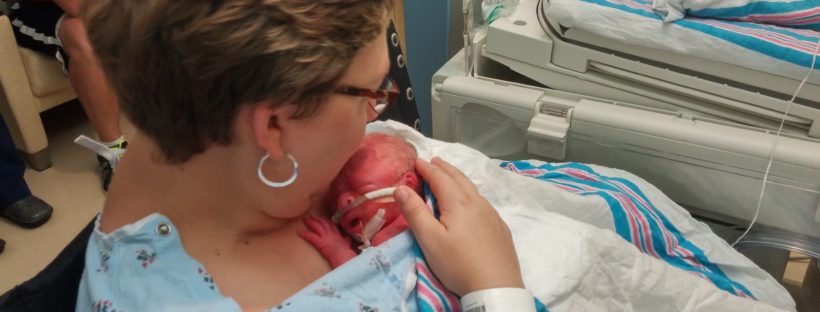
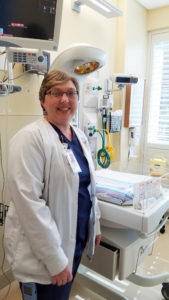
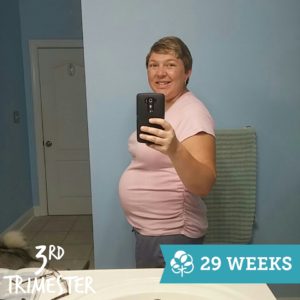
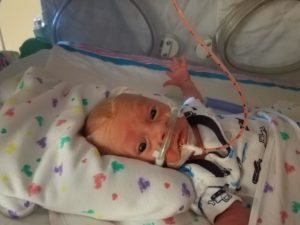
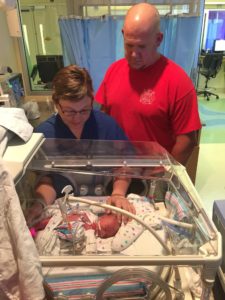
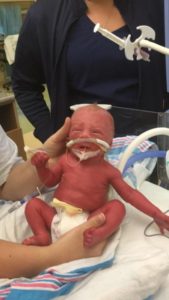
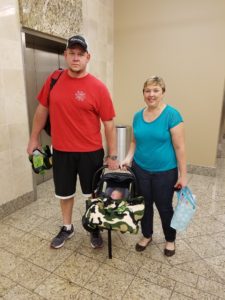
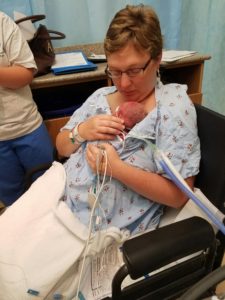
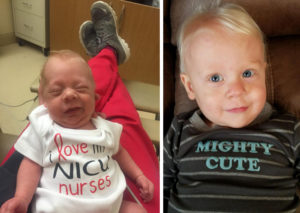
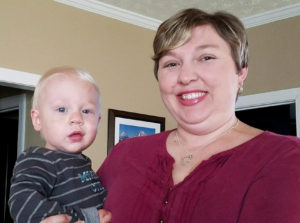

 Tasha Poslaniec has been a registered nurse for 17 years. She has been working in obstetrics for over a decade and is currently a Perinatal Quality Review Nurse and Childbirth Educator.
Tasha Poslaniec has been a registered nurse for 17 years. She has been working in obstetrics for over a decade and is currently a Perinatal Quality Review Nurse and Childbirth Educator.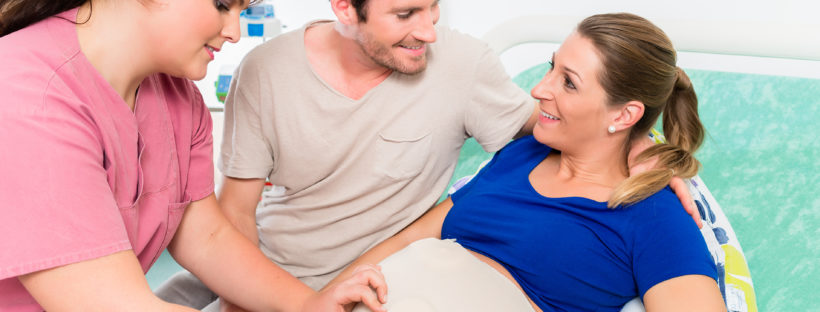
 Amy is an ABSN student at MGH Institute of Health Professions, Boston. She was a stay at home mother for 12 years, a community coordinator for a non profit kids running program and a volunteer at Dana Farber Cancer Institute in Boston before deciding to enter the nursing field. With extensive volunteer experience from a camp for blind & visually impaired adults and children, to co-president of an elementary school PTO, she enjoys working with diverse groups of all ages. Amy aims to work in labor and delivery after graduation in August 2017 but is also interested in global health and epidemiology. She has intentions to keep making a difference in the lives of those she may never meet again.
Amy is an ABSN student at MGH Institute of Health Professions, Boston. She was a stay at home mother for 12 years, a community coordinator for a non profit kids running program and a volunteer at Dana Farber Cancer Institute in Boston before deciding to enter the nursing field. With extensive volunteer experience from a camp for blind & visually impaired adults and children, to co-president of an elementary school PTO, she enjoys working with diverse groups of all ages. Amy aims to work in labor and delivery after graduation in August 2017 but is also interested in global health and epidemiology. She has intentions to keep making a difference in the lives of those she may never meet again.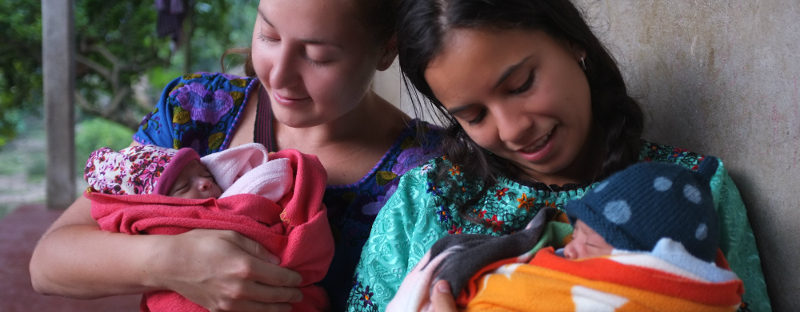
 Evgeniya Larionova received her Bachelors of Science in Nursing from MGH Institute of Health Professions. She is a founder and an Artistic Director of AMGITS Drama&Poetry Club at the Boston Living Center. She is a member of the student Leadership Committee of the Harvard Medical School Center for Primary Care. Evgeniya is passionate about infectious diseases, community health and integrating holistic care in modern practices. In her spare time she plays in the Russian theater, enjoy reading, playing the guitar and hiking.
Evgeniya Larionova received her Bachelors of Science in Nursing from MGH Institute of Health Professions. She is a founder and an Artistic Director of AMGITS Drama&Poetry Club at the Boston Living Center. She is a member of the student Leadership Committee of the Harvard Medical School Center for Primary Care. Evgeniya is passionate about infectious diseases, community health and integrating holistic care in modern practices. In her spare time she plays in the Russian theater, enjoy reading, playing the guitar and hiking.
 There is a moment after labor when you realize that not only is your sweet little baby a patient, but that you are too. At least for me, that was something that hadn’t really registered. On the day that my little baby girl Isla was born I very quickly began to understand we would both need a ton of care in the hospital and at home.
There is a moment after labor when you realize that not only is your sweet little baby a patient, but that you are too. At least for me, that was something that hadn’t really registered. On the day that my little baby girl Isla was born I very quickly began to understand we would both need a ton of care in the hospital and at home.